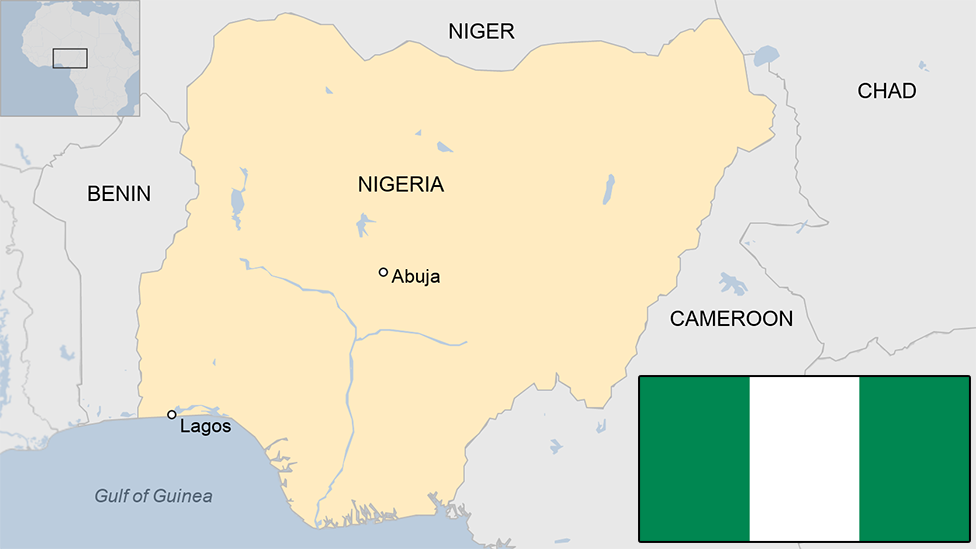Nigeria fuel truck blaze kills at least nine
- Published
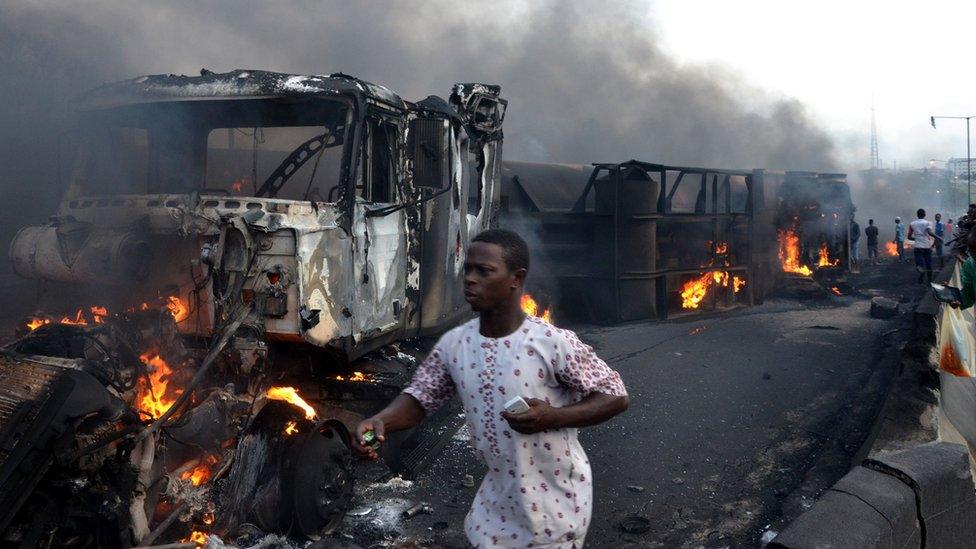
The fuel truck is believed to have lost control after its brakes failed
A petrol tanker has caught fire in Nigeria's biggest city, Lagos, killing at least nine people, officials say.
More than 50 vehicles, including five buses, were set ablaze after the truck lost control and spilled its contents on a busy motorway during rush hour.
The tanker is said to have crashed after its brakes failed.
Fuel explosions are common in Nigeria, Africa's biggest oil producer. Petrol is transported via badly maintained roads and vehicles.
The incident on Thursday occurred at about 17:30 local time (16:30 GMT) on the Lagos-Ibadan expressway, one of the main motorways into the city.
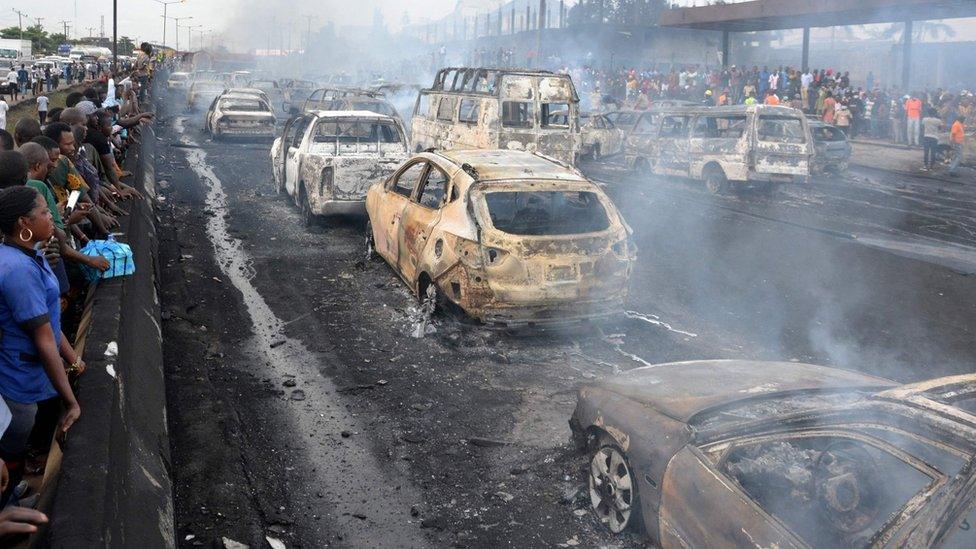
The incident occurred during rush hour on a busy motorway
A representative from the Federal Road Safety Corp (FRSC) told the BBC that the tanker had lost control as it approached a bridge, and ended up falling on its side.
Petrol then began pouring from the tanker and a fire erupted. The blaze quickly spread from vehicle to vehicle.
Images later showed black smoke rising from the road and the shells of several burnt-out cars.
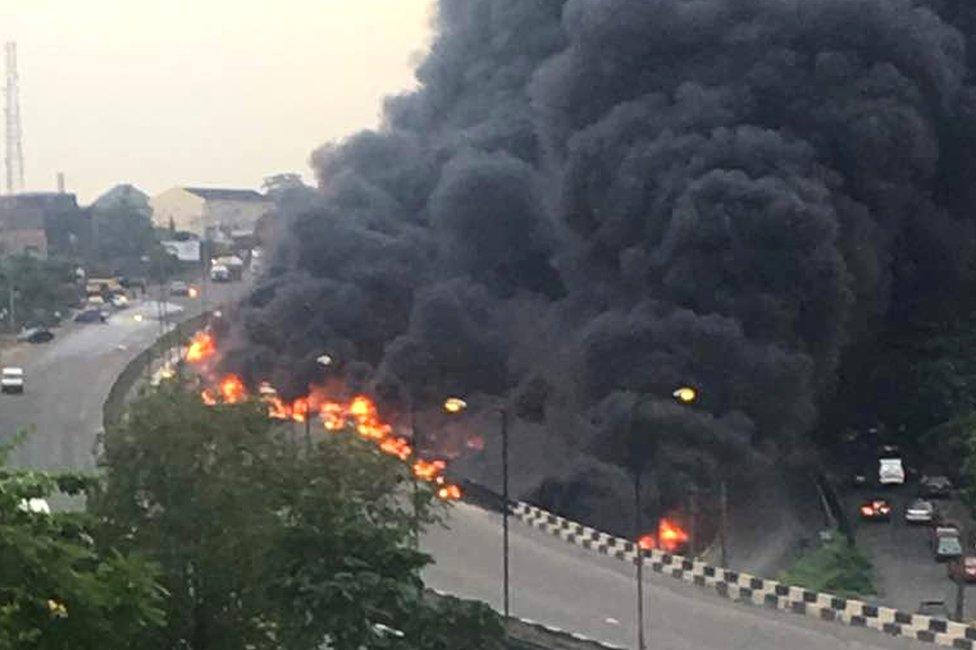
The Lagos-Ibadan expressway is one of the main routes into Lagos
Nigeria's President Muhammadu Buhari said he was "very sad to learn of the tragic loss of lives".
"Sadly, this seems to be one of the greatest tragedies we have seen in recent times," he said in a statement.
Government spokesman Kehinde Bamigbetan said it was time "to find ways of ensuring that tankers are driven by drivers who have more responsibility".
"We need to work more with federal agencies so we don't have these crises all the time," he said.


Disaster waiting to happen
By Sam Olukoya, BBC News, Lagos
By Friday morning the full scale of Thursday's tragedy was still visible as rescue workers clear the road of the burnt-out remains of the vehicles.
An acrid smell still hangs in the air.
It's a gory scene many Nigerians are all-too familiar with. Oil tankers have been involved in some of Nigeria's worst road accidents. Many of these tankers were conveying imported fuel from the Lagos port for distribution around the country.
Even though Nigeria is the world's sixth largest exporter of crude oil, the country imports virtually all its fuel because its refineries are not working due to years of mismanagement.
The Lagos port remains the main entry for the fuel that serves Nigeria's almost 200 million people.
It is a disaster always waiting to happen in a country where fuel distribution is in the hands of often reckless oil tanker drivers.
Most of them are driving tankers imported from Europe that are not roadworthy.
While Nigerians mourn the victims of this latest accident, many know it may not be the last, if efforts are not made to get good drivers and vehicles for Nigeria's fuel distribution business.

- Published25 December 2015
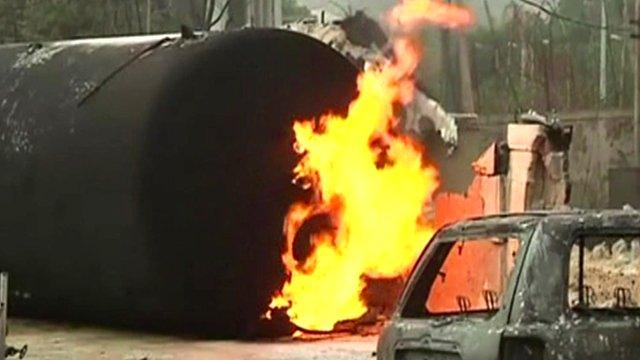
- Published9 January 2013
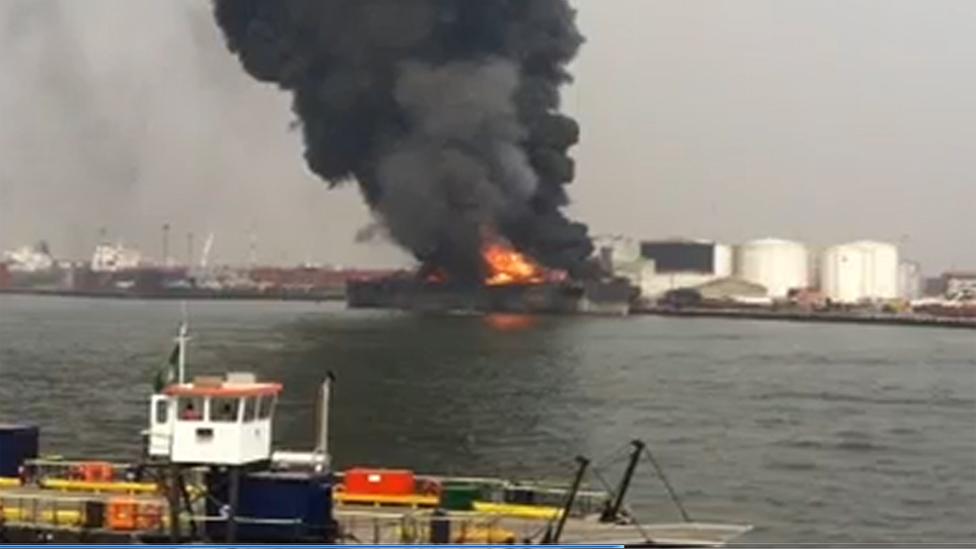
- Published28 July 2023
